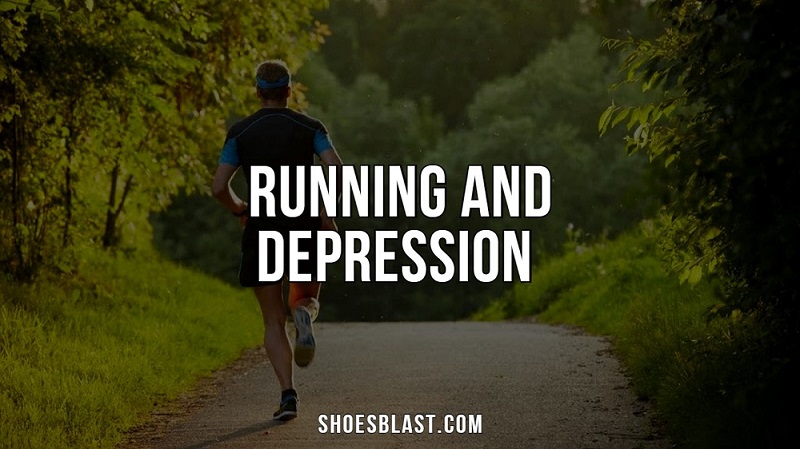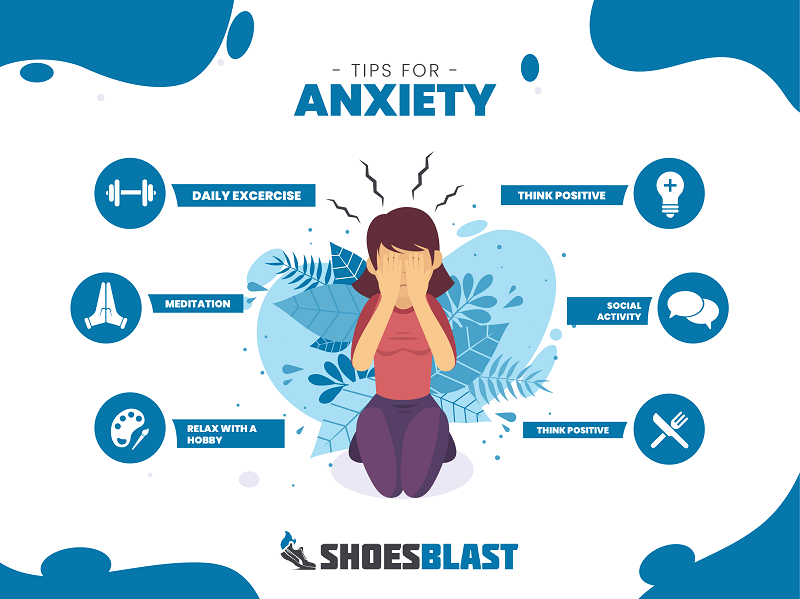If your day was shaped by anxiety and low energy, and there is a lot of self-loathing and you have no sort of drive to do anything, you need to let yourself alone run, soon you will find out that running has given you the energy that you never had before.
A regular run can not only improve your mental health, but also improves your memory, and lessen your feelings of loneliness and isolation. The relationship between running and mental health helps treat cases of mild to moderate depression. Exercise has a dramatic anti-depressive effect; it blunts the brain’s response to physical and emotional stress.
Movement is a medicine for creating change in a person’s physical, emotional and mental states ~Carol Welch
The National Institute for Health and Care Excellence (NICE) recommends that if you run for 45 mins to one hour and take 3 sessions a week for at least 10 to 14 weeks it will reduce your depression and boost your mood.
Running increases, the levels of serotonin, dopamine, and norepinephrine in the brain, just like medications can. It improves and helps regulate neurotransmitter levels, which ultimately helps us feel mentally healthy.
While you’re running you get a runner’s high and something just clicks that you are a champ even though your legs hurt but you feel good. It feels right when you wake up instead of getting on your phone, and you just put some shoes on and run outside and get some sunlight and fresh air that just instantly exercise you hardwire of your brain for success.
Get Yourself a Gust of Fresh Air
Running can get you into a trance, when you’re running for that long it does suck, but you just start daydreaming and the hours go into minutes and minutes goes into seconds so quick that it literally feels like a gust of fresh air every single time.
If you are on a long run with your partner, you would find out that you are sharing far more on those runs than in your therapy session. It made it a lot less scary to open up about what you are feeling. You will soon feel like a lot has changed since you started running especially since you started running and talking simultaneously. It will just create a massive difference in your confidence and belief in your capabilities.
I love the feeling of the fresh air on my face and the wind blowing through my hair ~ Evel Knievel
It opens a new environment for you where you can manage your mental health in a much healthier way. A study published in the American Journal of Psychiatry concluded that engaging in physical activity of any intensity for at least one hour each week could prevent 12 percent of future cases of depression.
Among people with depression and similar health conditions, running or any aerobic exercise appears to have substantial mental health benefits. A review published in the Journal of Neurology found that running can significantly improve depression symptoms when used as an add-on therapy to usual treatment.
Become More Aware of What’s Really Worth Your Energy
A person who is suffering from anxiety or depression actually sets the boundaries around him and just thinks deeply about life and he really works out the problems in his head. Running regularly at a moderate level will let you feel more mature and stable. You will feel clearer about your intention just like after meditation.
Running also increases concentrations of norepinephrine, a chemical that helps moderate the brain’s response to stress. Similar to other treatments, it can take 4 to 6 weeks to start working and can achieve the maximal effect in around 10 weeks.
A regular run will allow freedom and an opportunity to focus on something that’s right in front of you especially when you are running offroad, you got a watch on people and it just quietens those pungent thoughts. Running sometimes gives you a self-break from what’s going on in your life and lets you live yourself.
Get Those Endorphins Working
David Linden, Ph.D., a professor of neuroscience describes the phenomenon of “Runner’s high”, a short-lasting, deeply euphoric state and other effects of running on the brain. When you start your run, your body goes through a transition.
Your heart pumps harder to move oxygenated blood to your brain and muscles. As you hit your stride, your body releases hormones called endorphins that shoot up to your brain and set you up in a euphoric state.
However, surveys have revealed “Runner’s high” to be rather rare and merely experienced by athletes. Though endorphins help prevent muscles from feeling pain. It is unlikely that endorphins in the blood contribute to a euphoric feeling or any mood change at all. Research shows that endorphins do not pass the blood-brain barrier.
By making running or jogging (or any aerobic exercise) a regular part of your routine, you stand to earn more than just physical and mental health gains over time.
Voluntary exercise is the single best thing one can do to slow the cognitive decline that accompanies normal aging ~David Linden.
If you simply want to try new activities, that can help ease your depression and anxiety, here are some great exercises.
- Go for a Run for an All-Natural Mood Boost
- Lift Your Mood by Lifting Some Weights
- Combine Yoga With Other Treatments to Feel Even Better
- Relieve Stress With Graceful Tai Chi Moves
- Walk Regularly to Help Ease the Blues
- Get a Healthy Dose of Sunlight by Heading Outdoors
- Break Out of a Funk by Bouncing

Mahwish Hafeez is a freelance content writer, and a researcher. Her area of expertise includes blog writing, article writing and research work based on different aspects of social, health, Accounts and Finance and digital content



